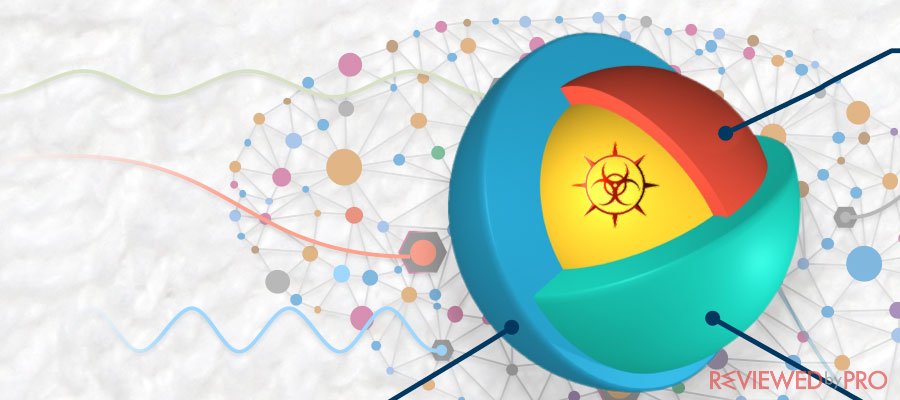
There are always two sides of a coin, the good and the bad. No matter how advanced, productive, or helpful the thing is. If it falls on the wrong hands, then it has the full potential to cause chaos. Nuclear energy was intended to shift the human civilization to developing a more safer and cleaner form of energy, but it became an instrument in the creation of the Atomic Bomb.
IBM created a malware named DeepLocker that is based on artificial intelligence technologies
Over the course of the next few years, criminals may produce the means to reverse-engineer the AI’s ability to combat malware, and IBM has brilliantly showcased such potential catastrophe in the form of DeepLocker, which is an artificial intelligence-powered malware set to ruin any one’s day.
This malware is genuinely a game-changer as antivirus software services will now have to design their products differently in a much smarter manner to tackle it.
The same is the case with technology, which is doing wonders in every walk of life from education to health, you name it whether it be the internet, smart gadgets to help the disabled, or artificial intelligence.
Artificial Intelligence[1] is, namely, one of tech’s proudest creations as it has revolutionized our means of convenience and accessibility in every field. From automatic cars to be in every household in the form of Alexa and Siri, Artificial Intelligence is everywhere.
Tech and cybersecurity[2] experts are designing their product by inducing bits and pieces of AI into their software and products to increase its efficiency while understanding the increasing threat and vulnerability to cybersecurity all around the globe.
Given the high number(billions) of malware attacks being reported every year, only something like the AI technology is capable of detecting them quickly and learning their pattern of attack to decrease them on multiple devices at once.
There is an old conspiracy theory that AI robots will gain consciousness one day and will take over the world and become our overlords. But in all seriousness, artificial intelligence has the full potential of getting weaponized by people and entities with bad intentions.
A common malware is instantly detectable and killable as antivirus software knows what it looks like, doesn’t matter in what shape or form the malware comes from, whether it be a file downloaded from the internet or a zero-day(signatureless) software.
Deeplocker[3] is a malware that got created by a research team working at IBM to learn the next generation of malware attacks and get inside the heads of cybercriminals. It is an entirely acceptable fact that artificial intelligence will be at the center point of the next technological shift, and it is how hackers will design their malware to infiltrate the computers of ordinary users.
The malware does not give out its signature of being a virus at all beyond the reach and scanning ability of antivirus software as it operates in the form of non-threatening programs like an audio software.
Malware that uses artificial intelligence can change itself to remain undetectable to the antivirus software
Malware is designed on two components, the first one is the condition that triggers it to open inside a device and the second one is the malicious payload that attacks and causes harm to the device it infects in the form of the following things:
- Data theft;
- Activity monitoring;
- Displaying advertisements;
- Deleting or modifying files;
- Downloading new viruses
- Running background processes, such as cryptocurrency mining.
DeepLocker will not show its full form or true colors until it reaches its intended target, which is usually the disk drive of the computer. It uses artificial intelligence to attack its victim by using a deep neural network (DNN) AI model, which makes it unlikely for the conventional antivirus to act against it.
DeepLocker will act like a standard software until the point where it knows that it has reached close to its specific target. The malware’s neural network creates a particular key to initiate the virus-infestation on the device or file. This sequence will prompt the AI to take over individual targets, which includes the device’s audio/video files and other system-level features.
The uncertainty of knowing the malware’s trigger points and targets would make it highly difficult for security analysts and experts to understand the working of the AI malware’s intricate network and reverse engineer it to create a powerful antivirus software to fight against it.
The Future Steps against Malware like DeepLocker
An AI-based malware has changed the name of the cybersecurity game. These new ways will prompt more deadly virus attacks in the future. The cybersecurity experts need to lean into the world of artificial intelligence and design new and improved ways to deal with viruses such as DeepLocker.
This could be done by learning the patterns of such AI-based malware and find out some means to misdirect it that it has reached its trigger conditions when in reality, it will be placed in a sandbox, away from causing any trouble on the device of the user.
IBM shared DeepLocker to the public so it could learn how to fight with it
Online data stealing and virus attacks have been becoming a severe problem for the majority of the tech-loving population due to the fact that even a small slipup in performing daily browsing or data sharing ritual may well be the last final nail in the coffin.
Even though AI-based malware hasn’t become a significant threat in the present, things are not looking brighter ever since IBM shared DeepLocker to the public. Besides, the fact that hackers could turn a technology like artificial intelligence to the dark side one day to damage the data of the everyday user.
It is vital for antivirus service providers and security experts to come up with a way to reverse engineer the AI-based malware such as DeepLocker to keep themselves one step ahead of the problem. Otherwise, the chances of a tech apocalypse coming sooner rather than later are very high.
- ^ Wikipedia, the free encyclopedia. Artificial Intelligence. Wikipedia, the free encyclopedia.
- ^ Wikipedia, the free encyclopedia. Cyber Attack. Wikipedia, the free encyclopedia.
- ^ Security Intelligence. DeepLocker: How AI Can Power a Stealthy New Breed of Malware. Security Intelligence.




